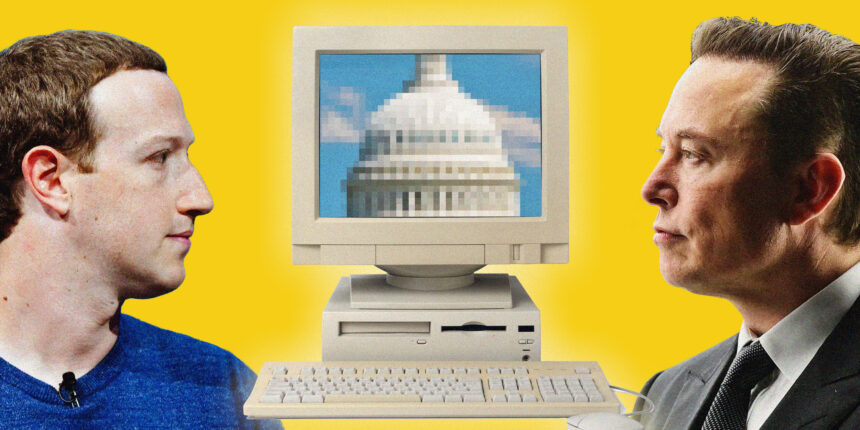Tech CEOs descended on Capitol Hill Wednesday to speak with senators about artificial intelligence as lawmakers consider how to craft regulations for the powerful technology. “It was a meeting that ‘may go down in history as being very important for the future of civilization,'” billionaire tech executive Elon Musk told reporters as he left the meeting.
Senate Majority Leader Chuck Schumer, D-N.Y., hosted the panel of tech executives, labor and civil rights leaders as part of the Senate’s inaugural “AI Insight Forum.” Sens. Mike Rounds, R-S.D., Martin Heinrich, D-N.M., and Todd Young, R-Ind., helped organize the event and have worked with Schumer on other sessions educating lawmakers on AI.
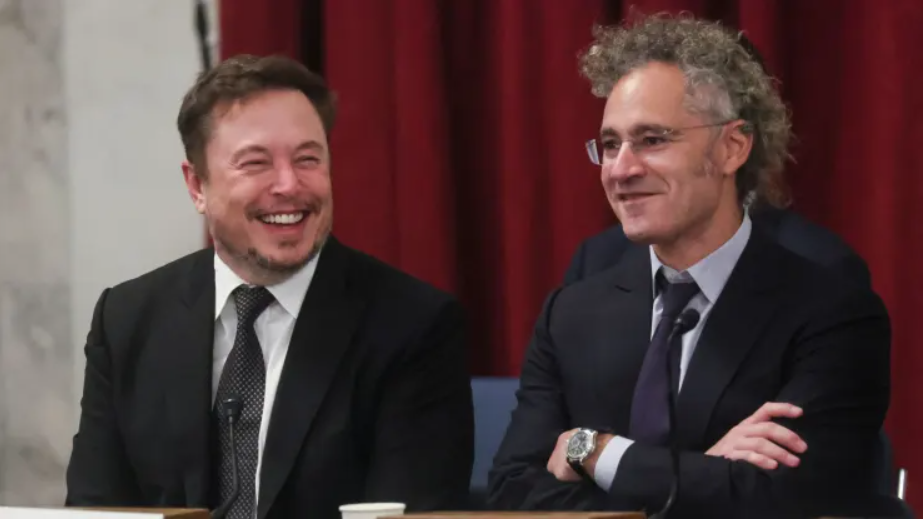
Prominent tech executives, including CEOs such as Sam Altman of OpenAI, Bill Gates, the former CEO of Microsoft, Jensen Huang of Nvidia, Alex Karp from Palantir, Arvind Krishna leading IBM, and Elon Musk, who heads both Tesla and SpaceX, attended a closed-door panel discussion. Also in attendance were Satya Nadella, CEO of Microsoft, Sundar Pichai, CEO of Alphabet and Google, Eric Schmidt, former Google CEO, and Mark Zuckerberg, CEO of Meta. The panel, which had more than 60 senators in attendance according to Schumer, provided a platform for an open discussion without the usual constraints of a public hearing. Schumer also mentioned the possibility of some future forums being open to the public.
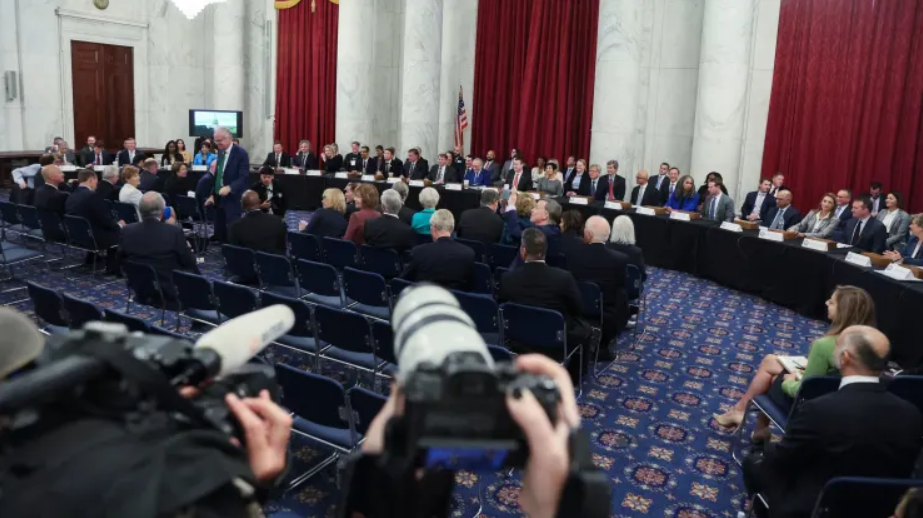
The panel also included several other notable stakeholders representing various sectors, including labor, civil rights, and the creative industry. Key figures among them were Charles Rivkin, Chairman and CEO of the Motion Picture Association; Liz Shuler, President of AFL-CIO; Meredith Steihm, President of the Writers Guild; Randi Weingarten, President of the American Federation of Teachers; and Maya Wiley, President and CEO of the Leadership Conference on Civil and Human Rights. Following the morning session, Liz Shuler of the AFL-CIO stated that the meeting provided a unique opportunity to bring together a diverse range of voices.
“It was a very civilized discussion actually among some of the smartest people in the world. Sen. Schumer did a great service to humanity here along with the support of the rest of the Senate. And I think something good will come of this.
Elon Musk, CEO of Tesla and SpaceX
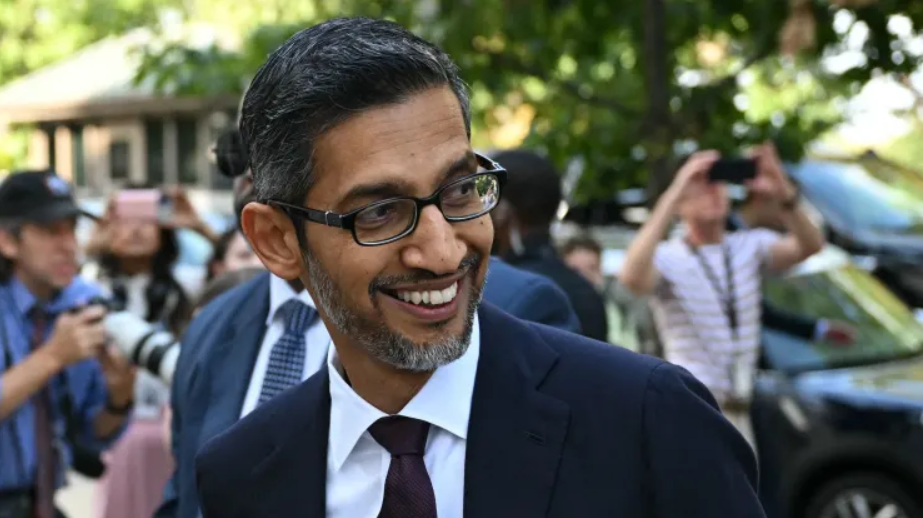
Sundar Pichai, Google’s CEO, laid out four key areas where Congress can have a significant impact on the advancement of AI technology based on his prepared comments. Firstly, by formulating policies that encourage innovation, such as increased investment in research and development or immigration regulations that attract skilled professionals to the United States. Secondly, by actively promoting the expanded adoption of AI within government operations. Thirdly, by utilizing AI to address major challenges like cancer detection. Lastly, by pushing forward with initiatives aimed at facilitating workforce transitions for the benefit of all.
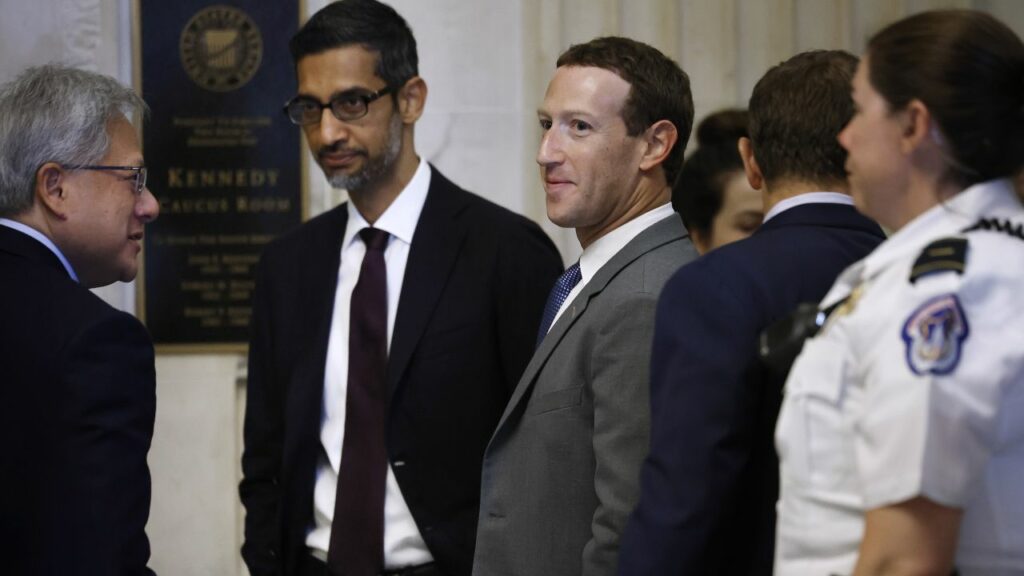
Mark Zuckerberg, the CEO of Meta, stated that he views safety and access as the “two defining issues for AI,” as per his prepared remarks. He explained that Meta is taking a deliberate and careful approach to the introduction of their products. This approach involves openly sharing research findings, collaborating with academic partners, and establishing usage policies for their AI models.
Zuckerberg also emphasized Meta’s dedication to open-source AI initiatives as a way to ensure broad accessibility to the technology. Nevertheless, he noted that Meta does not strictly adhere to open-sourcing everything and acknowledges the value of closed models as well. In essence, he believes that a balanced approach, which encompasses both open and closed models, can generate more value in many cases.
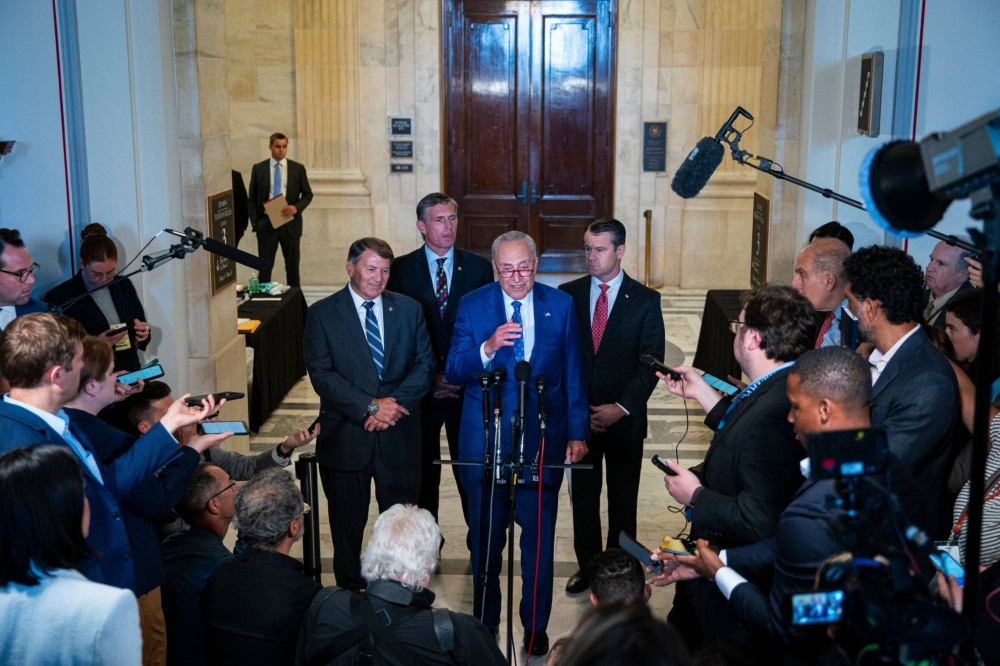
Advancing legislation efforts
Schumer, in his prepared remarks, emphasized that the event signifies the commencement of a significant and intricate endeavor: establishing a foundation for bipartisan AI policy that can be approved by Congress. While there is substantial interest in Washington regarding the creation of regulatory frameworks for AI, many legislators have expressed the need to acquire a deeper understanding of the technology before determining appropriate constraints.
However, Schumer stated to reporters after the morning session that legislative action should be taken within a matter of months, not years. He stated, “If you go too fast, you could ruin things. The EU went too fast, and now they have to go back. So what we’re saying is, on a timeline, it can’t be days or weeks, but nor should it be years. It will be in the general category of months.”
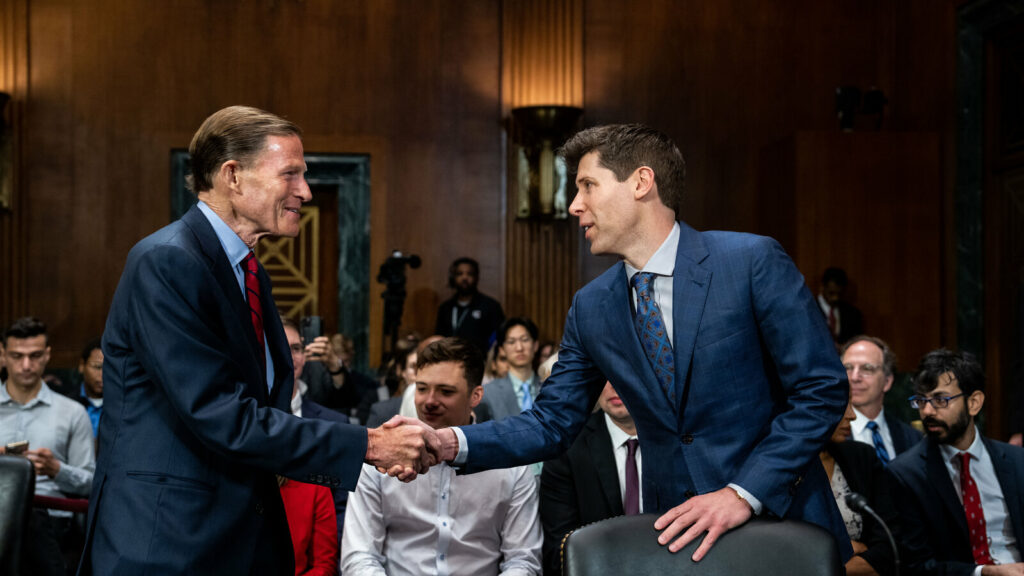
Schumer expects the legislation to go through congressional committees, emphasizing the need for a bipartisan effort. He mentioned that everyone present at the session supported the idea of government involvement in AI regulation. The group didn’t discuss specific regulatory models in detail during the morning session but planned to address them later. Opinions varied on whether a “light touch” approach was suitable, as well as which agency, new or existing, should oversee AI regulation.
Young stated that those present at the meeting agreed that the development of AI should be guided by U.S. values rather than those of the Chinese Communist Party. While Schumer has been leading the effort to establish a comprehensive legislative framework, he encouraged his colleagues to begin crafting AI regulation bills without delay. However, he also acknowledged that creating sensible legislation that can garner support will require some time.
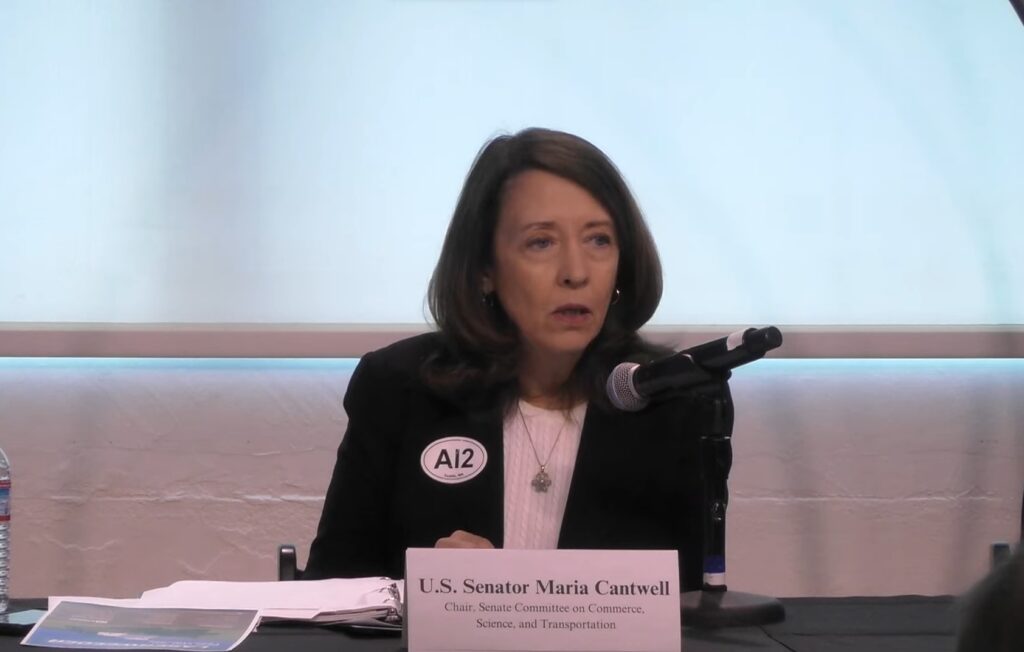
Senator Maria Cantwell, a Democrat from Washington who chairs the Commerce Committee, expressed confidence that lawmakers could complete AI legislation within the coming year. She cited the bipartisan Chips and Science Act, which allocated funds for semiconductor manufacturing, as an example of how significant technology-related legislation can be swiftly passed.
In the afternoon session, several AI executives, including Altman, remained engaged in discussions that delved deeper into crucial questions surrounding the technology. The topics included transparency, AI applications in healthcare, workforce displacement due to AI, and the question of who should oversee AI regulation, as indicated by Schumer. They also emphasized the need for immediate action before the upcoming election, particularly concerning issues related to deepfakes and watermarking AI.


